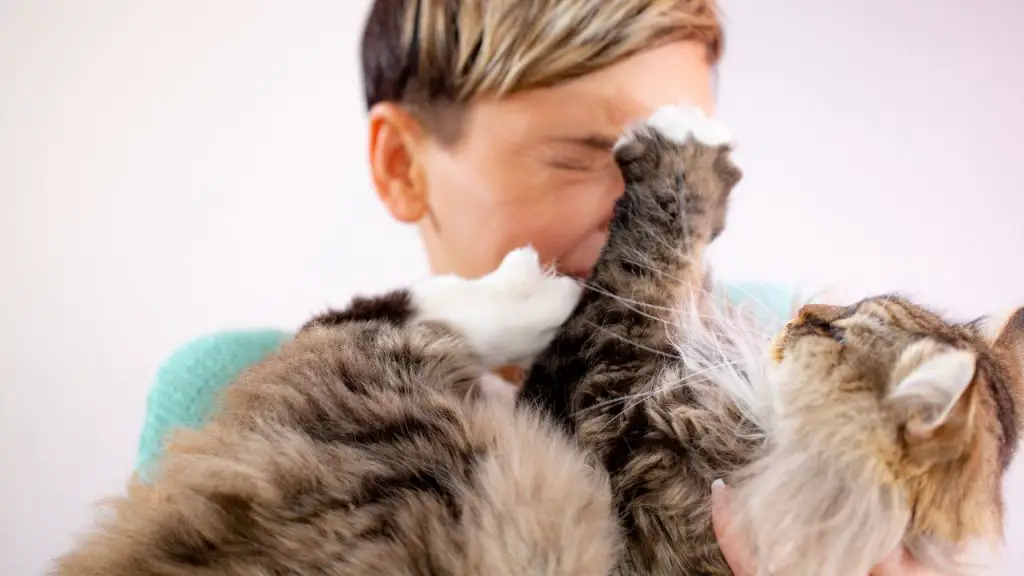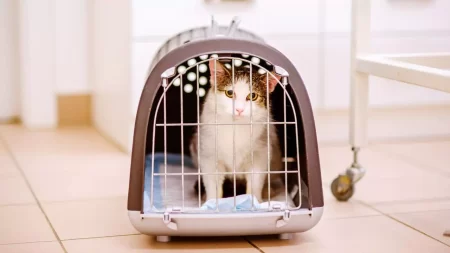Ever been scratched by a cat? It’s painful! But did you know it can also put you at risk for serious illnesses? In this post, let’s explore what happens if a cat scratches you.
Plus, we’ll share tips on how to stay safe. Don’t miss out on these helpful hints for avoiding injury or sickness!
Cat scratches can be serious. Their long, sharp claws can penetrate the skin. Areas usually scratched our hands and arms when playing or petting a cat.
Clean the wound right away with soap and water. If it turns red, swollen, or hurts, seek medical help. A doctor may give antibiotics to prevent infection.
Apply antibiotic ointment to the wound until healed.
Types of Scratches
Cat scratches can vary. From light abrasions to deep cuts needing tissue repair. Cats use their claws to protect themselves or show affection. Any cat may scratch if feeling threatened. It’s important to know the types of scratches.
Light Scratches – usually look like minor abrasions. Thin red lines. No skin penetration. Cleaning is necessary to avoid infection.
Deep Scratches – much worse. Long, jagged cuts. May darken over time. Wash with soap and water. Use an antiseptic cream or ointment. Medical care may be needed for sutures or antibiotics.
Potential Health Risks
A cat’s tiny teeth and razor-sharp claws can lead to puncture wounds. These wounds can get infected with germs like staphylococcus and Pasteurella multocida, which can cause abscesses or joint infections. Rarely, cats may carry Bacillus anthracis, which leads to anthrax.
When cats scratch, they can transfer parasites like fleas or ticks to humans. These can cause diseases like Bartonellosis (‘cat scratch disease’), ehrlichiosis, Lyme disease, or Rocky Mountain spotted fever.
To avoid these issues, wear protective clothing when interacting with cats. This can help to minimize the risk of being scratched or infected.
Dangers of Infection
Most cat scratches only cause some pain and slight bleeding. But, it can be serious. Any break in the skin from a scratch or bite can lead to infection, including diseases like bartonellosis and cat scratch fever.
Clean the wound with mild soap and running water. Put antibiotic ointment on it if needed.
If there’s more swelling, redness, heat, pain, or discharge at the site of the scratch, get medical help right away. You may need a tetanus shot if it’s been more than five years since your last one.
Call the vet before visiting their office to understand any special COVID-19 precautions they have in place.
Treatment of Cat Scratches
Cat scratches can be serious. Treat them quickly to reduce the risk of infection and discomfort. For minor scratches, wash with warm soapy water. Then, put on antiseptic lotion and cover with a sterile bandage.
If the wound is deep or painful, seek medical help. Depending on the scratch and health condition, antibiotics or stitches may be needed.
Monitor for signs of infection like redness, swelling, warmth, or discharge. If unusual symptoms are present, speak to your doctor about treatment options.
Prevention Strategies
To protect yourself from getting scratched by a cat, you must be prepared. Know the signs cats give off when they are feeling stressed or aggressive. These signs include hissing, growling, flattening ears, tail lashing, and poofing up fur.
To prevent an attack, give your cat interesting toys and activities to occupy their time. Grooming your cat regularly will also help them get used to being touched in other areas. Setting boundaries is important. Teach your cat gentle interaction with humans and other animals. Don’t allow them on counters or tables as this may encourage them to scratch other places like furniture or clothing.
Cat Behavior and Scratching
When a cat scratches, it’s often a warning to stay away. Cats use it to mark territory and fend off other animals. If your cat scratches you, check for stress sources. Get rid of them if you can. If not, take your cat to a vet or animal behaviorist.
Cats scratch to sharpen claws and stretch their bodies. Give them tall, strong posts covered with sisal rope. This encourages them to scratch the post instead of other objects!
Summary
Cat scratches can vary from minor to severe. If claws are removed and the force is hard, it can be more serious. Minor scratches cause only slight skin irritation, like itchiness and redness. These usually get better in a couple of days with a simple wash. More severe scratches can cause infection and need medical help.
If the cat scratch has broken the skin, gone deeper than the top layer, or has swelling, pain, or pus, get medical aid right away. Cat scratches may become infected if not treated. Be conscious of the signs of infection and get medical help quickly if needed.







